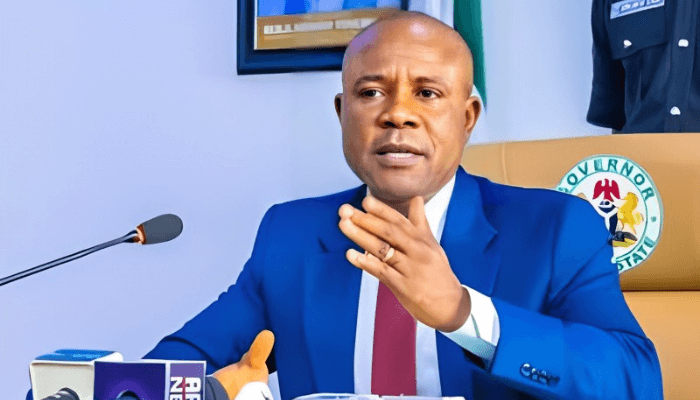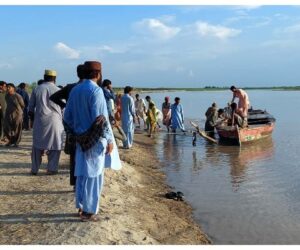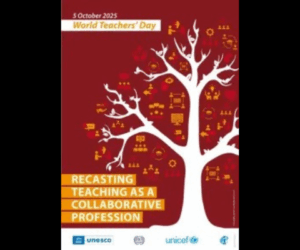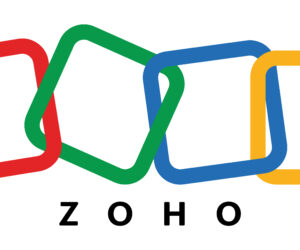Peter Mbah, Enugu State governor, is setting the pace with the repositioning of education in the state through a seamless transition to smart green schools, which began on Monday.
By this action, the governor has ushered in a new epoch in the history of the state and the life of the state’s children. The action, which is the governor’s signature initiative, entails moving the existing primary and junior secondary schools to smart green schools.
The governor, in a broadcast to usher in the new era, explained that the shift from old school structures and learning by memorisation to world-class infrastructure and experiential learning had become imperative to equip Enugu children with knowledge and skills to compete in the global economy, stressing that the state is no longer a state waiting to be served, but one shaping the future on its own terms.
“Africa today is the youngest continent in the world. More than 60 percent of our people are under the age of 25. By 2050, our population will reach 2.5 billion, and one in every three young people on earth will be an African. This is a stark reminder that our future will be built by young hands.
“This is not just a statistic; it is a summons. It means that the destiny of African nations rests on what we nurture in the minds and hearts of our children.
“If we raise them well and leave them opportunity, when they inherit tomorrow, when they own it, they will shape it and defend it. If we fail them, no amount of slogans will save us,” he stated.
Mbah said his administration’s slogan, ‘Tomorrow is here,’ was not just a catchphrase for Enugu, but “a covenant with that future,” adding that Africa’s sovereignty rests on the quality of its human capital.
He explained further that it is the recognition that the sovereignty of the state, Nigeria, and indeed Africa, will be determined by the strength of the young people – their ability to think critically, innovate, and act with integrity.
“Our sovereignty begins in the classroom. It begins with how we choose to welcome the child into the world. And this takes time, care, and investment,” he said.
Citing his personal experience, where he had to journey from the slums of Port Harcourt, where every day was a struggle and nothing was guaranteed, Mbah said education and resilience were his passport to a life of possibility.
He, however, maintained that Enugu children did not have to go through such ordeals on account of economic circumstances, insisting that education must be treated as a public right.
“At home and at school, when a community receives and educates each child as a whole human being, it is akin to public service at the deepest level,” he said.
Continuing, he said, “the habits a child rehearses – attention, curiosity, patience, empathy, self-belief, become the civic habits of our culture. A school day shaped by rhythm, responsibility, and care quietly trains the nervous system for self-regulation and the social muscle for cooperation.”
The governor noted that those capacities later show up as lower violence, stronger communities, and a public square that can tolerate disagreement without tearing itself apart, stressing that the school, then, is not just a service, but also a place where the human village renews itself.
He explained that the smart green schools represent the most personal and transformative project of his leadership, adding, “they are not only schools, but also my promise of a new society, and my covenant with the Enugu child. “In that child, Tomorrow Is Here finds its truest form,” he said.
“Each of the 260 schools is designed as a complete ecosystem for learning. ‘Smart’ means integrating technology, critical thinking, and problem-solving into every subject. Each has about 25 digitally-connected modern classrooms, ICT centres, robotics and AI labs, e-libraries, and spaces for experiential learning.
“They are ‘green’ because they have renewable energy sources and smart farms where children plant, grow, and harvest, learning agriculture not as theory, but as practice,” he explained.
He added that the schools are inclusive as every child is provided with free uniforms, books, meals, and tablets. Each school has its own medical clinic, reliable water systems, and community halls that anchor the school in village life. Housing for teachers is on-site so that the best educators live within the communities they serve, ensuring continuity of care and commitment.
“Smart Green Schools are not just an investment in classrooms, but in the soul of our people. The habits a child rehearses, of curiosity and collaboration, become the civic habits of the culture.
The governor believes that a generation raised in schools of innovation will build an economy of innovation, pointing out that a generation raised in classrooms of fairness will create a polity of justice. “So, those buildings are beyond mere bricks; we see in them children eagerly looking forward to the future,” he emphasized.









